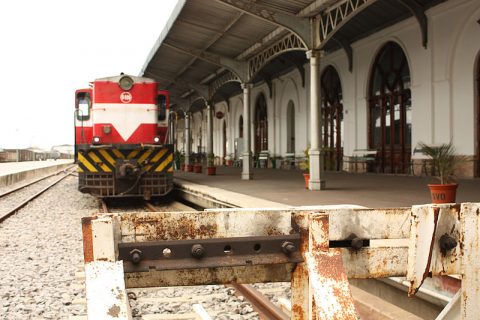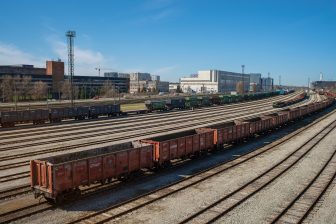
Mozambique regains South African coal cargo service
Mozambique’s publicly owned port and rail company CMF has regained its rail freight service carrying coal from South Africa to the Port of Matola, in southern Mozambique, after it had been operated for twenty years by South African rail freight operator Transnet Freight Rail (TFR).
Mozambique had to sell operations on the line in 1998 due to a lack funds. The South African rail freight operator took over the business. Now it will once again be in the hands of the state. An estimated five to seven trains per day will be operated, moving a total of 21,000 tonnes of goods on the 83- kilometre long railway.
Importance
The Mozambican ports of Maputo and Matola, both of them on the Indian ocean coast, used to play a strategic role not only in export from Mozambique, but also from South Africa, Zimbabwe and Swaziland, mainly handling coal and agricultural products when Portugal controlled the territory. However, the civil war (1975-92) impacted the Mozambican economy, destroying its rail tracks and increasing the logistics costs of exports in the mentioned countries.
During the Civil War, the Mozambican government was supported by Cuba, China and the USSR, while the rebel army was supported by the US and South Africa. Consequently, South Africa and Mozambique had a tense relationships until the 2000s. The successful development programmes of the World Bank and Chinese investments favoured the rail freight revival and a larger dynamism of the fishing and agricultural industries, their main exporter sectors. Meanwhile, the government had improved commercial relationships and road and rail connections with its bordering countries, such as South Africa.




